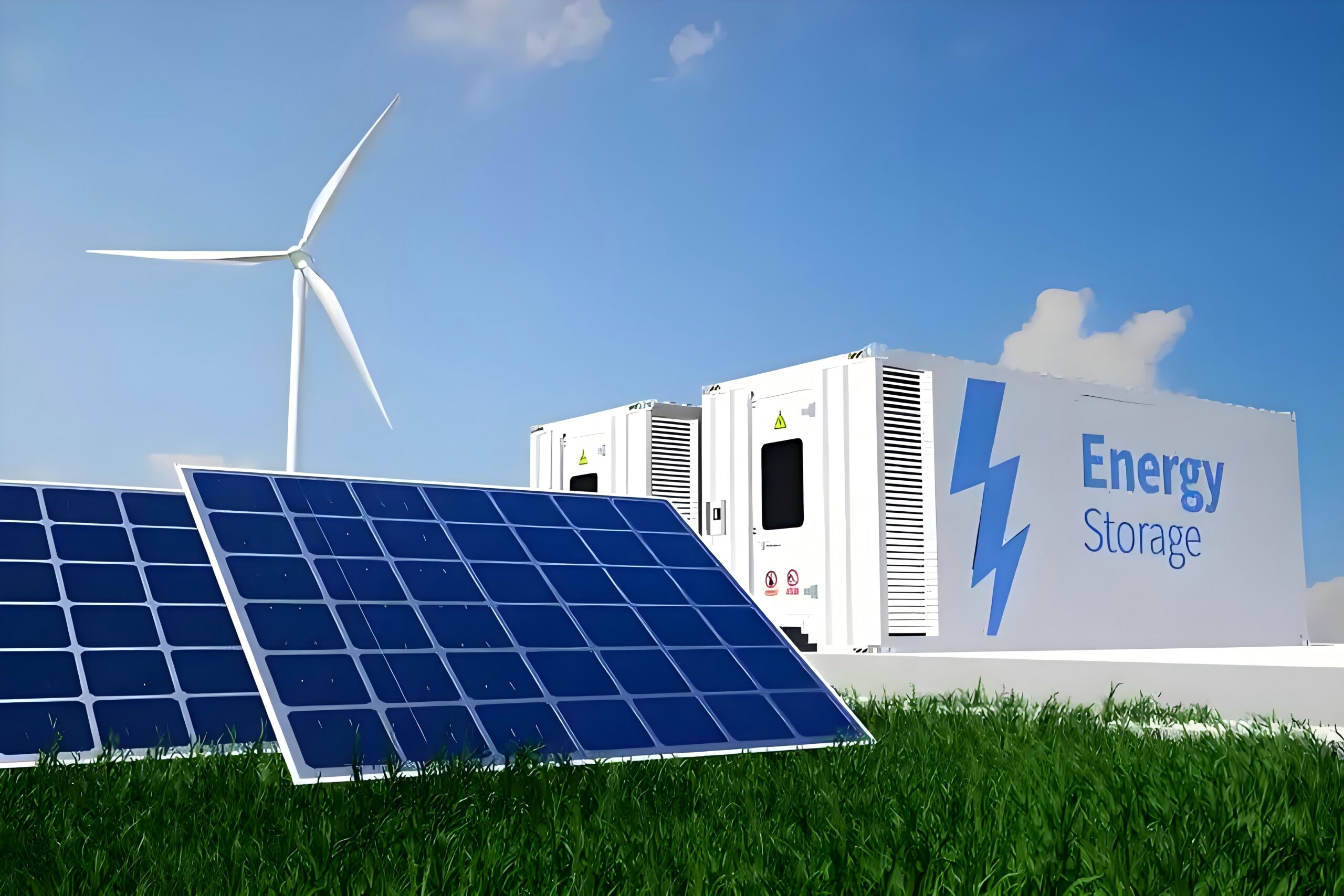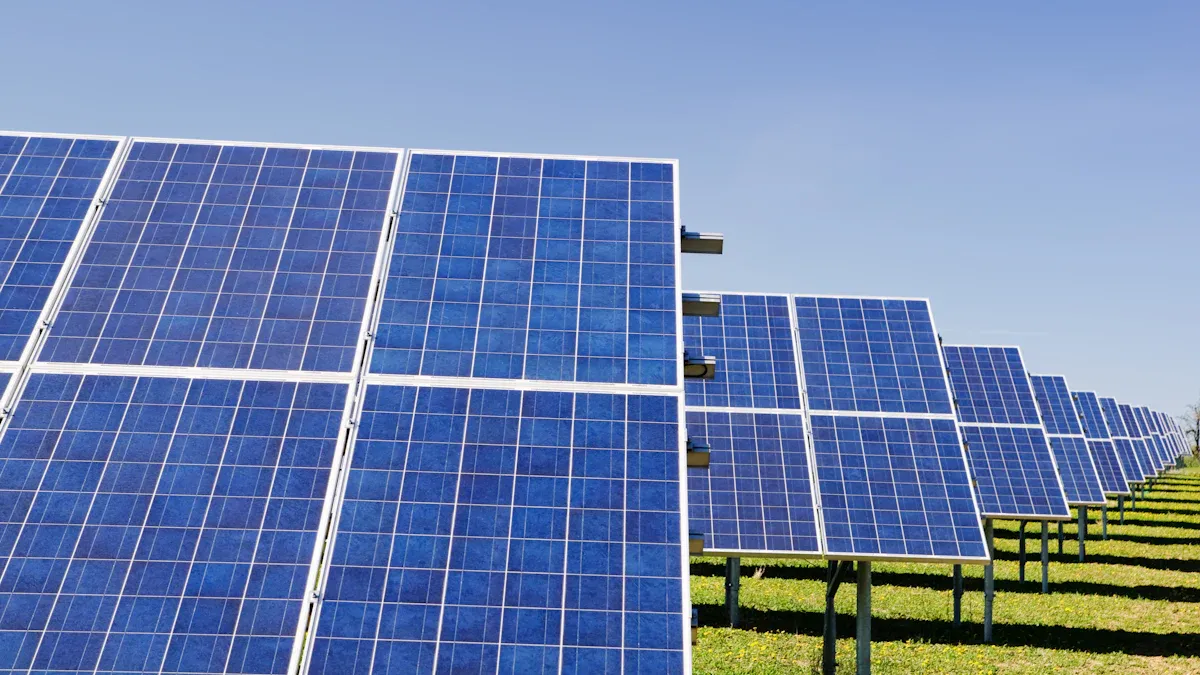
If you ask how much is one solar panel in nigeria, current market data shows prices vary by brand and efficiency. Take a look at these 2024 prices:
Brand/Type | Price per Watt (₦) |
|---|---|
Brand Jinko Solar | 301 – 320 |
Brand Canadian Solar | 305 – 330 |
Brand LG Solar | 430 – 480 |
Brand Renogy | 350-363 |
Brand JA Solar | 305 – 330 |
Brand LONGi Solar | 301 – 320 |
Brand Trina Solar | 305-330 |
Switching to solar panels can help you cut costs dramatically. Many buyers in nigeria now save between ₦2.16 million and ₦3.36 million every year by avoiding generator fuel and maintenance. You can enjoy reliable power and keep more money in your pocket.
Key Takeaways
Using solar panels can help families in Nigeria save a lot of money. They can cut electricity bills by up to 80%. This means families save a lot each year. Picking the right wattage and brand is very important. Some panels work better but cost more at first. These panels can save more money later. Buying many panels at once can lower the price. Bulk buying makes each panel cheaper. A good warranty is very important. It helps the panels work well for a long time. It also gives you peace of mind. Always look for trusted vendors. Compare their offers to get the best deal. Make sure you get good quality and support for your solar panels.
Solar panel prices in Nigeria
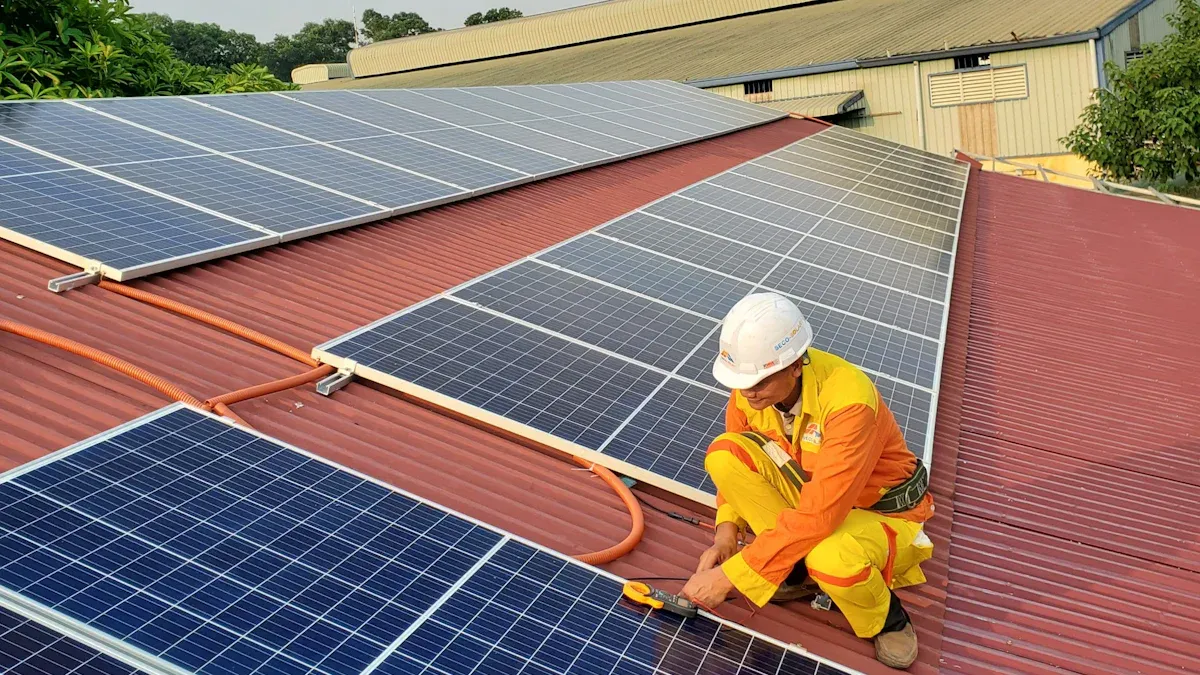
Price ranges by wattage
There are many different solar panel prices in Nigeria. The price changes based on the wattage you pick. If you want more power, you need a higher wattage. Higher wattage panels cost more money. Here is a table with the latest prices for popular wattages in Nigeria:
Wattage | Price (₦) |
|---|---|
10W | ₦6,000 – ₦10,000 |
20W | ₦12,000 – ₦18,000 |
100W | ₦25,000 – ₦35,000 |
200W | ₦40,000 – ₦60,000 |
300W | ₦60,000 – ₦85,000 |
400W | ₦80,000 – ₦110,000 |
550W | ₦130,000 – ₦160,000 |
Tip: Buying many panels at once saves money. For example, a 550W panel costs about US$60.00 if you buy a few. If you buy a lot, the price drops to US$4.30 each.
Think about how much energy you use before picking a wattage. Small panels are good for lights or charging phones. Big panels are better for homes or businesses that use more power.
Price differences by brand
Solar panel prices also change with the brand you pick. Some brands have higher efficiency and longer warranties. These features make them cost more. Here is a table showing popular brands and their price per watt:
Brand | Price Range (₦ per watt) |
|---|---|
Longi Solar | Higher than others |
JA Solar | Slightly higher |
Risen Energy | |
Suntech Power | 305 |
LG Solar | 600 |
REC Solar | 450 |
Renogy | 305 |
Canadian Solar | 305 |
Trina Solar | 305 |
Jinko Solar | 305 |
LG Solar and REC Solar cost more than most other brands. These brands use advanced technology and have higher efficiency. Most solar panel brands in Nigeria cost between ₦305 and ₦450 per watt. Premium brands can go up to ₦600 per watt.
Monocrystalline panels usually cost the most. They are more efficient and last longer.
Polycrystalline panels are cheaper but do not work as well as monocrystalline.
Thin-film panels are the cheapest. They have the lowest efficiency. They are good for big spaces where size does not matter.
Note: Higher efficiency panels help you save money over time. They make more electricity, so you need fewer panels and pay less to install them.
When you look at solar panel prices, check both the brand and the type. Try to match your budget with your energy needs. Good brands give you better performance and peace of mind.
Factors affecting solar panel prices
Brand and quality
Brand reputation is important for solar panel prices. Well-known brands like Canadian Solar and JA Solar cost more. They give you reliable products and better warranties. You pay extra for trusted brands because they have a good history. Here are some reasons why brand reputation matters:
Famous brands are known for being strong and lasting long.
You get longer warranties and better help if you need it.
Good panels work well and last for many years.
You can see how quality changes prices in this table:
Brand | Quality Features | Price Range |
|---|---|---|
LONGi Solar | Reliable and lasts a long time | Higher |
JA Solar | Works well even in tough weather | Higher |
REC Solar | Uses new ideas to make panels better | Higher |
Lower Quality | Cheaper but does not last as long or work as well | Lower |
Wattage and type
Wattage shows how much power a panel can make. Panels with more wattage cost more money. They make more electricity. If you have a big house or business, you need panels with high watt peak (Wp). The type of panel also changes the price. Monocrystalline panels cost the most. Polycrystalline panels are a little cheaper.
Type of Solar Panel | Price Range (₦) |
|---|---|
Monocrystalline | 140,000 – 160,000 |
Polycrystalline | 120,000 – 140,000 |
Warranty and support
Warranty is important for the price. Brands like LG Solar and Canadian Solar give strong warranties. This makes their panels cost more. You pay more for panels with long warranties because they last longer. Always check the warranty before you buy.
Tip: A long warranty means you worry less and feel safer.
Importation and availability
Import costs and taxes make solar panels cost more in Nigeria. Most panels come from other countries. Taxes and duties make them more expensive. If the government stops imports, prices could go up by 150%. This would make solar panels too expensive for many people. Changes in money value and problems with shipping also change prices. For example, a 100W panel bought for N22,000 may sell for N28,000 because of these costs.
Taxes and duties make panels cost more.
When money loses value, imported panels get more expensive.
Shipping problems mean fewer panels and higher prices.
Most panels come from China, which keeps prices lower than making them in Nigeria.
Knowing about solar panel prices helps you pick the best one for your needs.
Savings for buyers
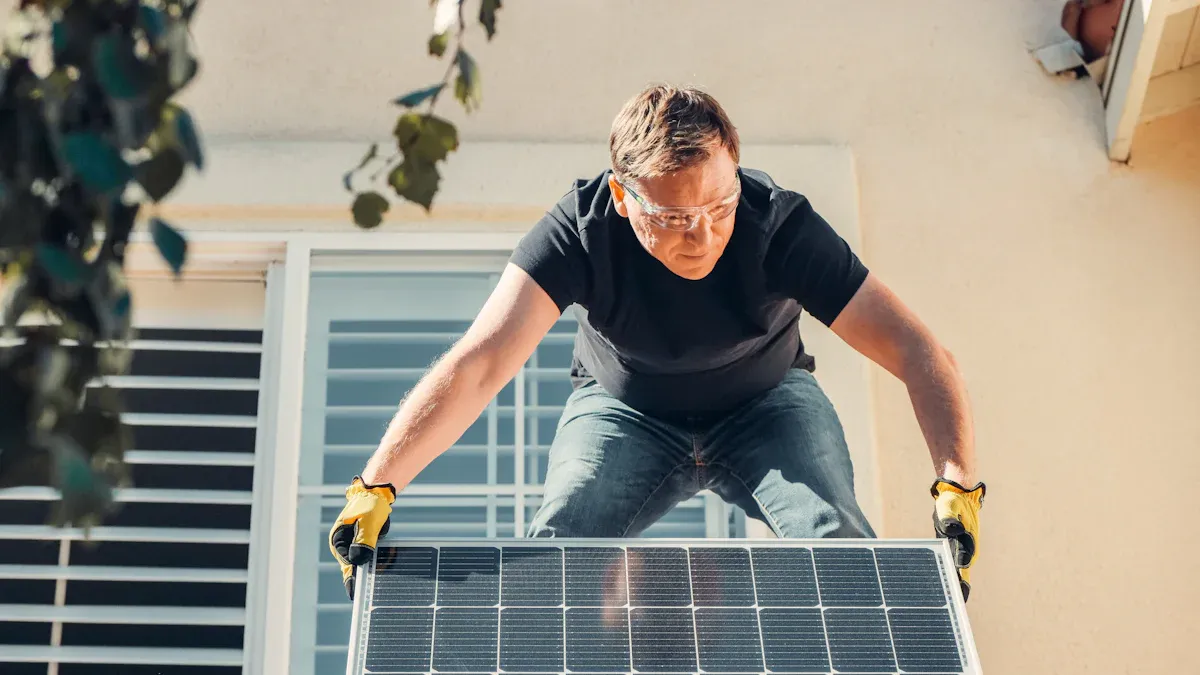
Household savings
Switching to solar panels helps families save lots of money. Many families in Nigeria pay ₦50,000 to ₦100,000 each month for electricity and generator fuel. Solar panels can lower these costs by up to 80%. Some families do not have to pay electricity bills anymore.
Amount (₦) | |
|---|---|
Monthly Fuel Savings | 50,000 |
Annual Fuel Savings | 600,000 |
10-Year Fuel Savings | 6,000,000 |
20-Year Fuel Savings | 12,000,000 |
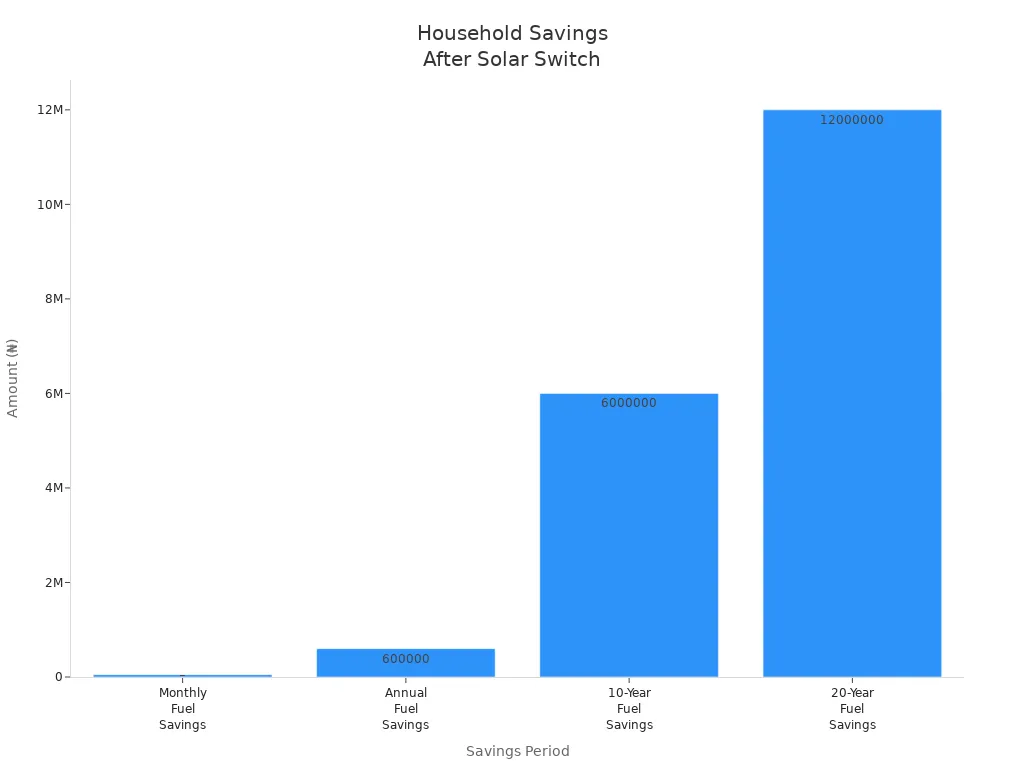
Families can save up to 80% on their electricity bills. How much you save depends on what you used to spend.
Business savings
Businesses in Nigeria also save a lot with solar panels. If a business spends ₦100,000 each month on energy, solar panels can cut that by 50-70%. For example, if a business spends ₦2,000,000 on solar panels, it can get that money back in less than two years. Many small and medium businesses save ₦100,000 to ₦500,000 every month. Solar panels also help avoid high diesel costs, which can be ₦200-300 per kWh. Solar power only costs ₦60-80 per kWh.
Businesses often see energy costs drop by 50-70% in the first month.
MSMEs can cut their average monthly energy spending by 36.64%.
Payback period
You might wonder how long it takes to get your money back after buying solar panels. In Nigeria, it usually takes between 3.7 and 8.3 years. Sometimes, you can get your money back in just six months, especially if you spent a lot on diesel before. The payback time depends on how much energy you use and the price of solar panels.
A shorter payback time means you start saving money faster.
Lower electricity bills
Solar panels help you pay less for electricity each month. You make your own power, so you do not need the national grid or generators. Some people even make more power than they use, so they save extra money. After getting solar panels, you do not need to buy fuel or fix generators.
You can save up to 80% on your electricity bills.
Many families and businesses now have steady power and lower costs.
In Nasarawa State, a solar project helped 50 families save 30% compared to old mini-grid systems. When fuel subsidies ended in 2023, solar energy became even cheaper for everyone.
Where to buy solar panels
Trusted vendors
It is smart to buy from companies with a good history. Many people in Nigeria trust these vendors for good products and service:
Kärtel: Gives a strong warranty and has a helpful team.
Solar Depot Nigeria: Sells many solar products and installs them too.
Power Solution Mall: Has low prices and many power choices.
Prag Global: Sells good solar products and does installation and repairs.
Mercury Direct: Focuses on inverters that are safe and reliable.
Pelton Batteries: Makes special batteries with a warranty.
Exulted Eagles Nigeria: Sells solar products and installs them well.
The Solar Shop Limited: Offers solar products and helps with repairs.
ME.3 Energy: Known for good service and helping people save money.
Sygnite NG: Gives energy solutions with trained workers.
Tip: Always check for support and warranty after you buy.
Online platforms
You can also buy solar panels on big online sites. These websites have many choices and deliver everywhere in Nigeria. Solar Energy Supply Stores sell real panels from top brands. WiSolar gives solar power when you need it and has easy plans for homes and businesses. Many sites let you pay in different ways and bring the panels to your door.
Comparing offers
When you look at solar panel deals, do not just check the price. Use this table to help you pick the best one:
Criteria | Description |
|---|---|
Brand Reputation | Big brands cost more but are trusted for quality. |
Panel Technology Type | Monocrystalline: Best efficiency, costs more. Polycrystalline: Medium efficiency, medium price. Thin-film: Least efficient, cheapest. |
Warranty Cover | Long warranties (20-25 years) are better for saving money. |
Import Duties and Taxes | Government rules can make prices higher because of import fees. |
Dollar Exchange Rate | Prices go up or down when the dollar changes against the naira. |
Check at least three deals before you choose. Try to find the best mix of price, warranty, and brand name.
Buyer tips
Choosing the right solar panels
Picking the best solar panels takes some planning. You need to think about a few key things to get the most for your money:
Climate: Nigeria gets lots of sun. This helps solar panels work well.
Panel Type: You can pick monocrystalline or polycrystalline panels. Monocrystalline panels work better but cost more.
Efficiency: Panels with higher efficiency make more electricity. This is great if you live where the sun is strong.
Durability: Pick panels with good warranties. Make sure they can handle heat and wet weather.
System Size: Choose a system that fits your energy needs. An expert can help you pick the right size.
Cost vs. Quality: Try to balance your budget and quality. Better panels may cost more but save you more money later.
Government Incentives: Look for any programs that help lower your costs.
Tip: Always ask for a warranty. Check if the panel can handle local weather.
Negotiating prices
You can get better prices on solar panels if you know how to ask:
The lowest price is not always the best. Make sure the warranty is good for you.
More expensive panels often work better, even when it is cloudy or rainy.
Divide the total price by the watts to compare deals. This helps you see which offer is best for your money.
Remember, a good deal means a fair price and good help after you buy.
Avoiding mistakes
Many people make mistakes when buying solar panels. You can avoid problems by doing these things:
Hire solar engineers who have experience and certificates.
Pick companies that help with repairs and maintenance.
Do not pick the cheapest panels if they are not good quality.
Learn how much energy you use before you buy.
Keep your system working well by doing regular checks.
Figure out your energy needs to get the right system size.
Do not use too many appliances at once on your system.
Checking and cleaning your solar panels often helps them last longer and work better.
You have learned that solar panels in Nigeria help people save money and get steady power. The prices are now good for many families. Top brands also give long warranties. If you use solar panels, you can pay less for energy and skip buying fuel.
Tip: Solar panels let you manage your own energy needs.
Think about using solar because it saves money and is smart. Solar energy in Nigeria is growing fast, and you can join this good change.
FAQ
How long do solar panels last in Nigeria?
You can expect your solar panels to last 20 to 25 years. Most brands offer warranties for at least 20 years. Regular cleaning and maintenance help you get the best performance and longest lifespan.
Can solar panels work during cloudy or rainy days?
Yes, your solar panels still generate electricity on cloudy or rainy days. The output drops, but you still get power. High-efficiency panels perform better in low-light conditions.
What maintenance do solar panels need?
You should clean your panels every few months to remove dust and debris. Inspect for damage or loose wires. Most systems need little maintenance. Schedule a professional check once a year for best results.
Do I need batteries for my solar system?
You need batteries if you want power at night or during outages. Batteries store extra energy for later use. If you only want to reduce your daytime bills, you can use a grid-tied system without batteries.
For your solar panels needs, do not hesitate to navigate on our official website: Angsun™ Solar panels for villa and mountain type. We are doing first level agency of brand solar panels to apply in overseas markets and some tailored needs can be satisified. It’s safe with us and keep your sourcing competitive.
